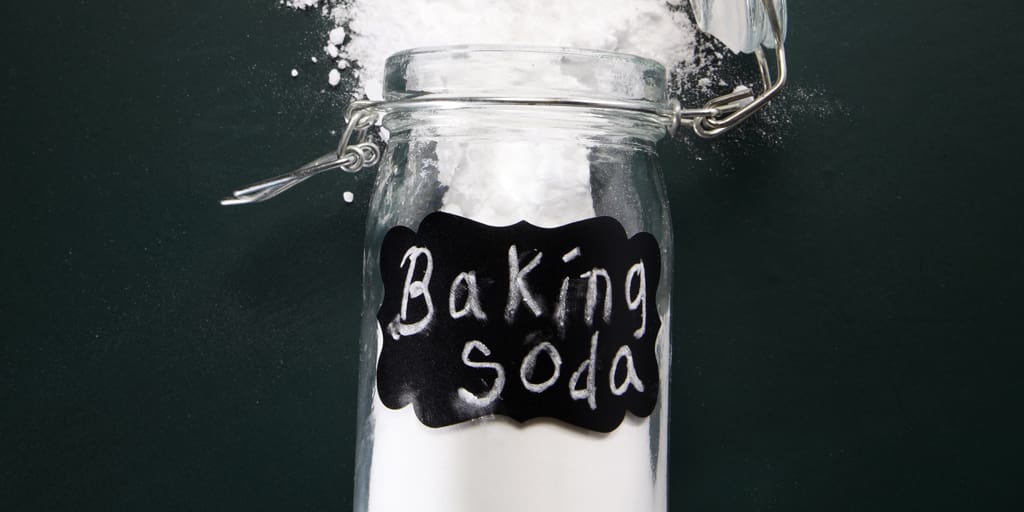The Performance Supplement You May Be Missing to Boost Performance
By: Katy Ingles[vc_column_text]Many people have probably used baking soda as an ingredient in various recipes. Baking soda, also known as sodium bicarbonate, while most commonly employed in baked goods, is regaining popularity as a possible ergogenic aid. The basic ingredient has been around since ancient Egyptian times, but it was not until the 1970s and 1980s when it starting to gain attention regarding performance related benefits. There’s research to suggest that sodium bicarbonate may be able to delay the effects of fatigue. This may allow athletes the ability to perform longer at a higher level. Due to sodium bicarbonate’s ease of access, ingestion, and quick impact, this common household ingredient is drawing a lot of attention in the exercise science world.[/vc_column_text][vc_column_text]
How Can Baking Soda Lower Fatigue?
So, exactly how does sodium bicarbonate work? You may have heard about lactic acid and how it contributes to fatigue. While it is true that intense exercise increases the build-up and concentration of lactic acid in muscle cells, recent research (Facey et al. 2013) suggests that it is not the greatest factor leading to fatigue. Fatigue is primarily caused by the buildup of hydrogen ions in muscle cells. This buildup leads to a drop in pH, resulting in muscular fatigue. Ingesting sodium bicarbonate can help by controlling the increased acidity in muscles from the excess hydrogen ions. Sodium bicarbonate acts as a buffer that draws acid out of the muscle cells. It delays the drop in pH levels caused by exercise. The drop in pH levels indicates an acidic environment in the muscles. As a result, the muscle tissues are not able to contract efficiently and effectively. Sodium bicarbonate is said to allow athletes to workout at greater intensity for longer duration by delaying the onset of fatigue. Premature fatigue is arguably a significant limiting factor in athletic performance.[/vc_column_text][vc_column_text]
Whose Performance Would Benefit from Baking Soda?
Athletes who primarily stress the anaerobic glycolytic system would most benefit from taking sodium bicarbonate. This would include any single-bout, high-intensity activity at or above 80% of peak O2 uptake, including sprinters, cyclists, swimmers, Olympic lifters, and even Crossfitters. These events are typically known to result in low pH levels due to the increased acidity in the muscle cells. Research has also suggested that sodium bicarbonate is beneficial in intermittent exercise performance in skill-based activities such as tennis and resistance training. By increasing the time to exhaustion, sodium bicarbonate supplementation can allow athletes to push past fatigue and delay declines in performance.[/vc_column_text][vc_column_text]
How Much Should I Take?
Research suggested dosing of sodium bicarbonate should be between 0.2-0.3 g/kg of body weight. Ideally, it should be consumed 60-90 minutes before the athletic performance. Since sodium bicarbonate has been known to produce some gastrointestinal discomfort, the dose may be split into smaller amounts. Taken with food and water will help absorption and minimize chances of GI distress. Taking sodium bicarbonate before practice sessions is recommended to see how you will react to the dosing and timing. Remember that contest conditions may differ from a typical practice due to increased adrenaline and jitters. Trying a “practice-run” by taking sodium bicarbonate before a lesser competition may help as well.[/vc_column_text][vc_column_text]References
Baking Soda: The Performance Supplement You Are Missing. (n.d.). Retrieved April 1, 2017, from https://breakingmuscle.com/fuel/baking-soda-the-performance-supplement-you-are-missing
Benzaquen, J. (2011, February 15). Sodium Bicarbonate Antacid Dosage Info. Retrieved April 1, 2017, from https://www.livestrong.com/article/382806-sodium-bicarbonate-antacid-dosage-info/
Facey, A., Irving, R., & Dilworth, L. (2013). Overview of lactate metabolism and the implications for athletes. American Journal of Sports Science and Medicine, 1(3), 42-46.
McNaughton, L. R., Siegler, J., & Midgley, A. (2008). Ergogenic effects of sodium bicarbonate. Current sports medicine reports, 7(4), 230-236.
Requena, B., Zabala, M., Padial, P., & Feriche, B. (2005). SODIUM BICARBONATE AND SODIUM CITRATE: ERGOGENIC AIDS?. The Journal of Strength & Conditioning Research, 19(1), 213-224.
Shelton, J., & Kumar, G. V. P. (2010). Sodium Bicarbonate-A Potent Ergogenic Aid?. Food and Nutrition Sciences, 1(1), 1.[/vc_column_text]







